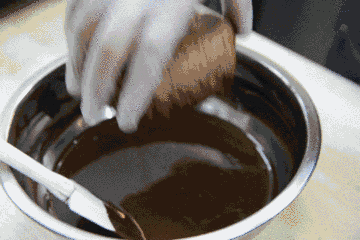
Chances are you already know that eating too much sugar isn’t good for you. Yet you’re probably still overdoing it: Americans average about 20 teaspoons of added sugars per day, compared to the recommended 6 teaspoons for women and 9 teaspoons for men. (That doesn't include sugar found naturally in foods like fruits and milk.)

Sugary drinks, candy, baked goods, and sweetened dairy are the main sources of added sugar. But even savory foods, like breads, tomato sauce, and protein bars, can have sugar, making it all too easy to end up with a surplus of the sweet stuff.
To complicate it further, added sugars can be hard to spot on nutrition labels since they can be listed under a number of names, such as corn syrup, agave nectar, palm sugar, cane juice, or sucrose. No matter what it’s called, sugar is sugar, and it can negatively affect your body in many ways.



Eating sugar gives your brain a huge surge of a feel-good chemical called dopamine, which explains why you’re more likely to crave a candy bar at 3 p.m. than an apple or a carrot. Because whole foods like fruits and veggies don’t cause the brain to release as much dopamine, your brain starts to need more and more sugar to get that same feeling of pleasure.
The occasional candy or cookie can give you a quick burst of energy (or “sugar high”) by raising your blood sugar levels fast. When your levels drop as your cells absorb the sugar, you may feel jittery and anxious (a.k.a. the dreaded “sugar crash”). But if you’re reaching into the candy jar too often, sugar starts to have an effect on your mood beyond that 3 p.m. Studies have linked a high sugar intake to a greater risk of depression in adults.
Candy can rot your teeth. Bacteria that cause cavities love to eat sugar lingering in your mouth after you eat something sweet.
Another side effect of too much sugar: It may make your skin age faster. Sugar attaches to proteins in your bloodstream and creates harmful molecules called “AGEs”.
These molecules do exactly what they sound like they do: age your skin. They have been shown to damage collagen and elastin in your skin -- protein fibers that keep your skin firm and youthful. The result? Wrinkles and saggy skin in the end.
An abundance of added sugar may cause your liver to become resistant to insulin, an important hormone that helps turn sugar in your bloodstream into energy. This means your body isn’t able to control your blood sugar levels as well, which can lead to type Ⅱ diabetes.


wow amazing
Please, upvote if you liked.
Hi! I am a robot. I just upvoted you! I found similar content that readers might be interested in:
https://www.webmd.com/diet/features/how-sugar-affects-your-body